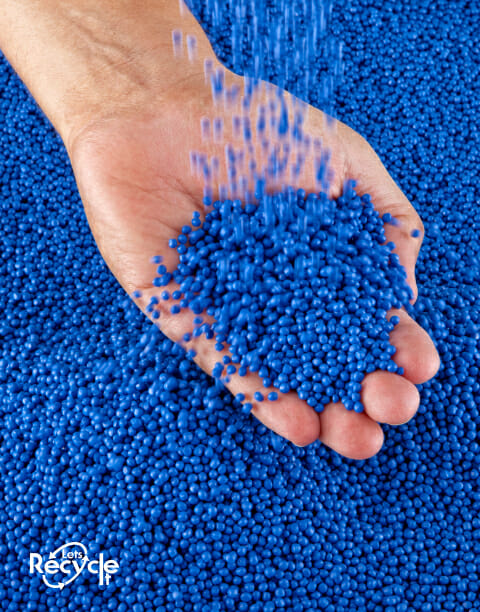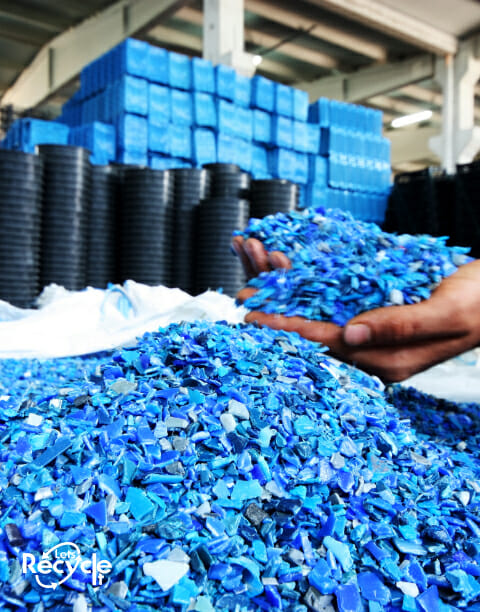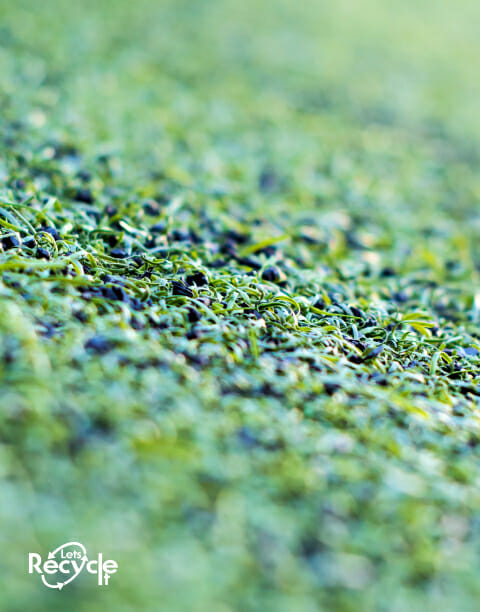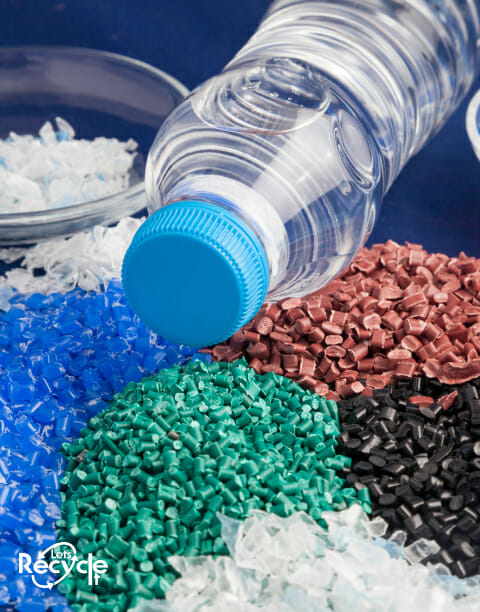Wanted
Are you looking to further your
career in plastic recycling?
At Let’s Recycle It Limited we are looking for professional purchasing
and sales representatives who are experienced and enthusiastic to
join our team. If you have any experience in buying and/or selling
plastic materials in Ireland, Northern Ireland or anywhere else in the
UK, then we encourage you to get in touch with us today.
*All applicants will remain confidential.
Wanted
Are you looking to further your career in plastic recycling?
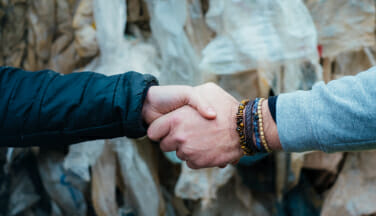
At Let’s Recycle It Limited we are looking for professional purchasing and sales representatives who are experienced and enthusiastic to join our team. If you have any experience in buying and/or selling plastic materials in Ireland, Northern Ireland oranywhere else in the UK, then we encourage you to get in touch with us today.
*All applicants will remain confidential.
Materials we accept
PET Recycling
PET - PET is the abbreviation for Polyethylene Terephthalate, which is formed when ethylene glycol and terephthalic acid are combined. It is a clear plastic that is both strong and lightweight enough to be popularly used for food and beverage packaging, with close to all single-use plastic drinks bottles being made from PET. It is also a popular choice for a great many other products, such as bottles for hygiene products and even tennis ball cannisters.
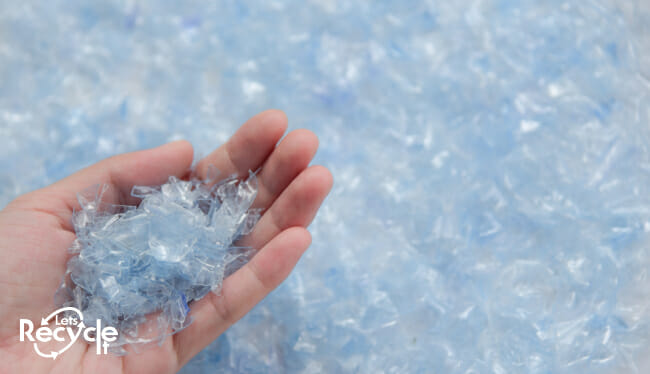
HDPE Recycling
HDPE - HDPE is the abbreviation for High-Density Polyethylene, which is made from the monomer ethylene. It is a thermoplastic, which means that it can become softer when heated in order to be moulded and will then harden when cooled without any alteration to the material’s properties. The material is incredibly versatile as it is lightweight, strong, malleable, impact resistant, weather resistant and long lasting. It is used across a wide variety of products over a range of different industries. For example, it is used for milk jugs, fuel tanks, piping, children’s toys, and even bread bags and cereal box liners.
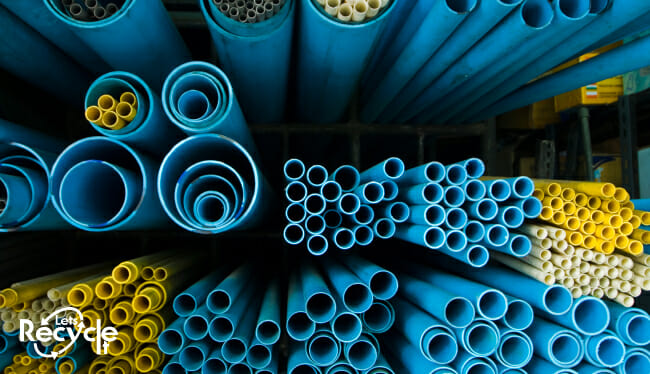
PVC Recycling
PVC - PVC is the abbreviation Polyvinyl Chloride. It is made by the combination of chlorine and ethylene to form the monomer vinyl chloride, which is then sequenced to make the polymer Polyvinyl Chloride. PVC is a very strong and tough material that can be easily shaped, which gives it many different uses in terms of what it can be manufactured into. PVC can also be made soft and flexible when mixed with certain additives. This means that whereas PVC can be used for construction, automotive and medical items, it can also be used for items such as polyvinyl flooring, clothing and upholstery.
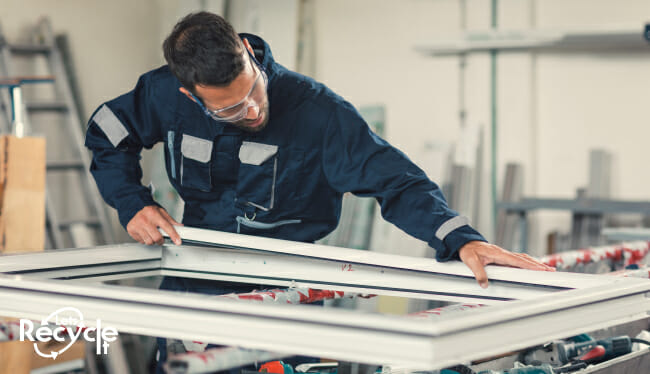
LDPE Recycling
LDPE - LDPE is the abbreviation of Low-Density Polyethylene, which is made from the monomer ethylene. LDPE is a thermoplastic, which means that when heated it can become softer in order to be moulded and will then harden when cooled without any alteration to the material’s properties. The plastic is lightweight, strong, impact resistant and chemical resistant. LDPE is an ideal material for the manufacturing of thin, flexible products such as plastic bags, shrink-wrap, stretch film, container lids, squeezable bottles and so on.
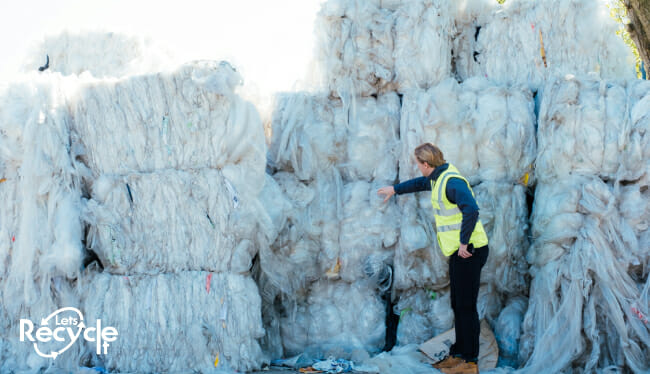
PP Recycling
PP - PP is the abbreviation of Polypropylene, which is a thermoplastic made from the monomer propylene. Being a thermoplastic means that when heated it can become softer in order to be moulded and will then harden when cooled without any alteration to the material’s properties. PP is tough, lightweight, chemical resistant and moisture resistant. The plastic is used for a wide range of products, such as packaging products, automotive parts and consumer goods.
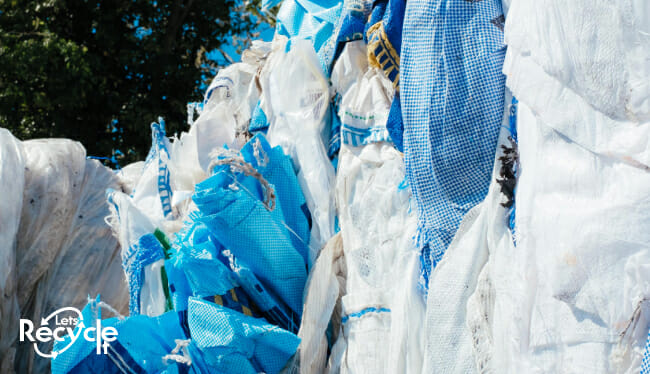
PS Recycling
PS - PS is the abbreviation of Polystyrene, a hydrocarbon polymer made from the monomer styrene. It is a thermoplastic, which means that when it is heated it can become soft enough to mould and then harden again when cooled. PS can come in the form of a solid plastic or a rigid foam. Solid PS is commonly used in items such as medical test tubes, household smoke alarm housings, CD cases and yoghurt pots. Foam PS is frequently used as packing material.
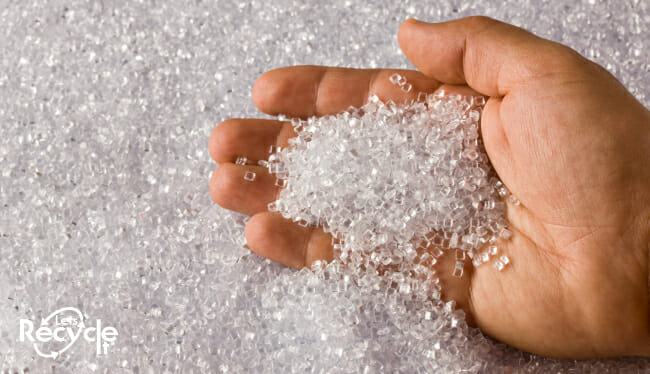
PC Recycling
PC - PC is the abbreviation for Polycarbonate. Polycarbonates are a group of thermoplastic polymers that contain within their chemical structure carbonate groups. PC is very strong, impact resistant, heat resistant, chemical resistant and lightweight. This plastic is commonly used in items such as parts for appliances, automotive parts, construction parts, medical gear, consumer products and food packaging.
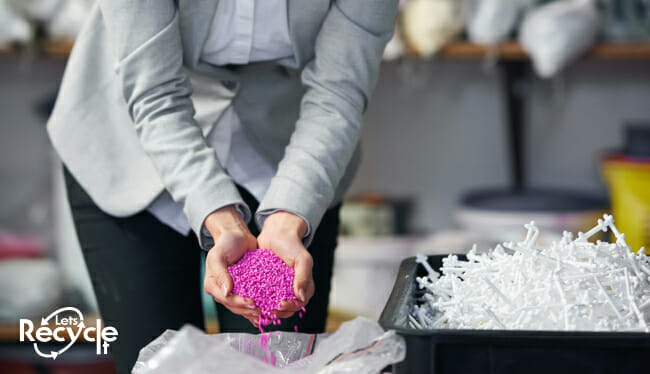
ABS Recycling
ABS - ABS is the abbreviation of Acrylonitrile Butadiene Styrene, a polymer made from the monomers acrylonitrile, butadiene and styrene. It is stiff, strong, impact resistant and chemical resistant. It is used in a number of different products such as computer parts, tools, plug socket faces and toys.
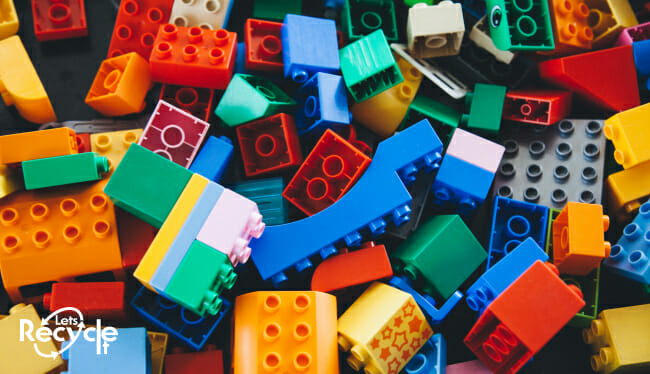
Steel Recycling
Steel recycling converts discarded steel into new material, leveraging steel's capability to be recycled indefinitely without degradation in quality. It's essential for managing resources and energy efficiency, as recycling steel uses less energy than producing new steel from iron ore. Recycled steel is fundamental in construction, automotive industries, and manufacturing of household appliances, supporting a sustainable circular economy.
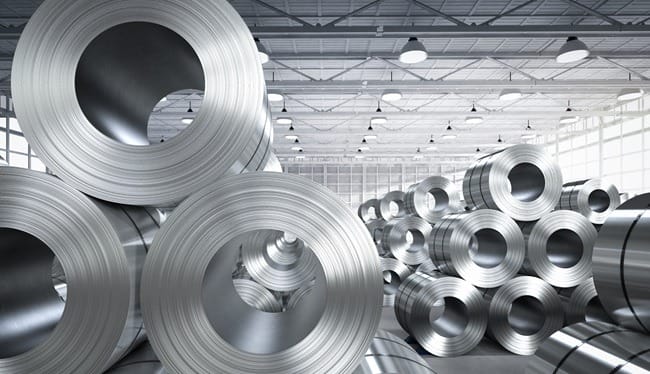
Aluminium Recycling
Aluminium recycling involves reprocessing scrap aluminium into new products, capitalising on aluminium's ability to fully retain its properties after recycling. It's a critical process due to aluminium's widespread use in cans, foils, tubes, and aeroplane parts. Recycling aluminium saves significant energy compared to primary production, reducing environmental impact and conserving the metal's availability for future use.
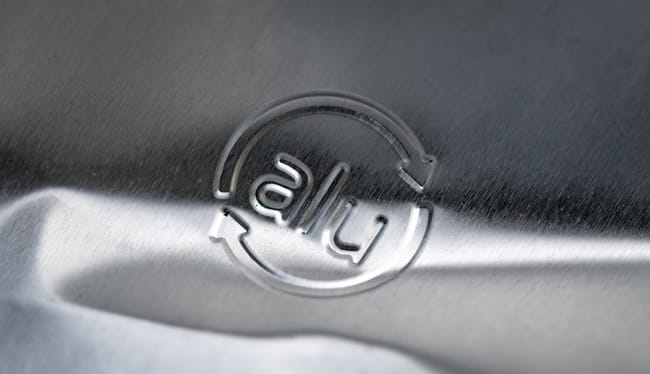
Trusted & Responsible
Where Let's Recycle It Operates
Countries We Cover
We pride ourselves on delivering industry unrivalled customer service, exceeding our customers' expectations across all of the countries we work in.
Ireland
- Ireland is Europe’s top producer of plastic waste per capita.
- 95% of plastic waste was exported to China until the country banned imports of waste from foreign countries in January 2018, meaning Ireland faces pressure to find alternate waste disposal methods to help them reach their 2030 goals of an 80% increase in plastic recycling.
- Ireland is placing a ban on single-use plastics coming into effect in 2021.
United Kingdom
- United Kingdom produces 5 million tonnes of plastic waste annually.
- UK set to introduce a plastic packaging tax of £200 per ton on packaging made of less than 30% recycled materials, which is expected to increase the use of recycled plastics in packaging by 40%.
- UK aims for all plastic packaging on the market to be recyclable, reusable or compostable by 2025.
France
- France produces 5 million tonnes of plastic waste annually.
- France ranks among Europe’s poorest performers in plastic recycling with a rate well below the European average, due to their insufficient domestic recycling capacity.
- France introduced a total ban on single use plastics to come into full effect in 2040 and began taking steps towards this in January 2020.
Belgium
- Belgium produces 610,000 tonnes of plastic waste annually.
- Belgium is one of the most efficient recyclers of plastic waste in Europe, recycling over 80% of their used plastic.
- Belgium is introducing a series of bans on single use plastics, which began with the ban of single use plastics at public events in Brussels.
Germany
- Germany produces 6.5 million tonnes of plastic waste annually.
- Germany has been famously known as the plastic recycling hub of Europe.
- They use ‘The Green Dot System’ whereby manufacturers and retailers must pay for a green dot on products. The more packaging they use, the higher the cost.
- Thanks to a low energy PET plastic (polyethylene terephthalate) recycling line at its plant in Rostock, Northern Germany, Veolia gives post-consumer plastic bottles a second life in a "bottle-to-bottle" cycle. One billion bottles per annum are recycled for further food use!
Poland
- Poland produces 3.4 million tonnes of plastic waste annually.
- Plastics processing is the biggest and most rapidly growing sector within the Polish plastics industry.
- Plastics processing in Poland accounts for 85% of the industry’s annual turnover; its main areas of processing include: plastic containers, bottles, packaging, pipes, automotive parts.
Hungary
- Hungary produces 740,000 tonnes of plastic waste annually.
- Hungary is one of the three worst offenders for meeting EU plastic waste recycling targets.
- Hungary is taking a number of steps to increase their plastic recycling to meet EU targets; they are introducing a single-use plastic ban in 2021 and will also introduce a tax on various other plastic items, such as straws, cups and plates.
Romania
- Romania recycles only 14% of its waste, while upwards of 70% of the waste produced is sent to landfill.
- Romania has failed to increase the percentage of the waste it recycles since 2010 and will miss the EU 2020 targets.
- In 2018, Romania was found guilty by the EU Court of Justice for failing to close and empty 68 landfill sites that were deemed to pose environmental and health hazards.
- Romania is applying for EU grants to help them invest in waste processing technology as an alternative to landfill.
Slovakia
- Slovakia recycles only 23% of its waste, while upwards of 65% of the waste produced is sent to landfill.
- Slovakia will introduce a total ban on single-use plastics in January 2021; it will be illegal to sell plastic straws, cutlery, plates etc.
- This ban is part of Slovakia’s efforts to make a shift towards using biodegradable packing materials.
Italy
- Italy produces 2.2 million tonnes of plastic waste annually.
- A report by the Italian Institute for Environmental Protection and Research in October 2019 found that more than 500,000 tonnes of plastic waste from Italy ends up in the Mediterranean Sea.
- Italy has steadily increased the amount of plastic it recycles since 2013, and the country is set to introduce a tax on plastic packaging in the summer of 2020.
Turkey
- Turkey produces 3.5 million tonnes of plastic wate annually.
- Turkey has become one of the largest importers of plastic waste as the US and Europe send more waste there since China began to close its doors to overseas recyclables, with an increase in the amount of imported plastic in Turkey of around 200% since 2016.
- Turkey’s Zero Waste Project, which began in December 2018, introduced several measures to reduce plastic consumption: for example, fees for plastic carrier bags and deposits for plastic drinking bottles.
India
- India produces 10 million tonnes of plastic waste annually, with around 4 million tonnes of it going uncollected.
- India is covered in illegal landfill sites that each cover several acres of land and hold thousands of tons plastic waste piled up several metres high, and is one of the world’s worst contributors to plastic pollution in rivers and oceans
- India introduced the Plastic Waste Management Rules in 2016, and amended them in 2018, to legislate for local authorities to be held responsible for setting up their own recycling infrastructure and for corporate responsibility on manufacturers for collecting the waste their products produce.
Pakistan
- Pakistan produces 6.5 million tonnes of plastic waste annually.
- Pakistan’s plastic industry has been growing at a staggering rate of 15% per year in Pakistan, which has led to the government introducing their plan of action to move towards a circular economy and achieve the UN’s Sustainable Development Goals for 2030.
- Pakistan is investing in its infrastructure to increase its capacity to collect and process plastic waste, especially PET single use drinking bottles.
- Regional bans have already been placed on the use of these PET single use bottles as they are one of the worst offending items contributing to Pakistan’s plastic pollution problem.
Sweden
- Sweden produces 300,000 tonnes of plastic waste annually.
- Sweden is one of the world leaders in recycling, having gone further than most other countries in moving towards a circular economy.
- Only 1% of Sweden’s annual waste goes to landfill; most of the waste is either recycled and sent back into manufacturing or is burned in low-carbon incinerators to produce energy to power anything from buses to apartment buildings.
Norway
- Norway is one of the world leaders in the recycling of plastic waste.
- Norway’s plastic drinking bottle recycling programme recycles over 97% of plastic bottles, with fewer than 1% going to landfill.
- The quality of the recycled plastic drinking bottle material is so high that 92% of bottles are used to make more bottles; the material has been reused to make new drinking bottle dozens of times in some cases.
- Norway is among the nations that send the least amount of waste to landfill; most of the waste in Norway is either recycled or burned in low-carbon incinerators to produce energy to power anything from buses to apartment buildings.
Finland
- Finland produces 380,000 tonnes of plastic waste every year.
- Finland, particularly in its cities, experienced its largest increase in the amount of plastic it recycled in 2019; in some areas recycling increased by 180% compared to 2018.
- Many housing companies in Finland have been joining the new eco-initiative to increase the amount of waste that is recycled and reduce the amount going to landfill.
Portugal
- Portugal produces 1 million tonnes of plastic waste annually.
- Portugal introduced bans on several single-use plastic items from 2020, including carrier bags and cutlery.
- Portugal is behind the EU’s recycling goals for 2020, but the country did recycle 10% more waste material in 2019 than it did compared to 2018.
Saudi Arabia
- Saudi Arabia produces 2.5 million tonnes of plastic waste annually.
- Saudi Arabia introduced new regulations for plastic in December 2017, with the second phase coming into effect in 2020, with the use of plastic being banned for several single-use products.
- Saudi Arabia is investing in new state of the art recycling facilities to mitigate the increasing demand they are set to face; with the rapidly increasing rates of population growth and urbanisation, the amount of waste Saudi Arabia produces is forecast to double by 2033.

United Kingdom
- United Kingdom produces 5 million tonnes of plastic waste annually.
- UK set to introduce a plastic packaging tax of £200 per ton on packaging made of less than 30% recycled materials, which is expected to increase the use of recycled plastics in packaging by 40%.
- UK aims for all plastic packaging on the market to be recyclable, reusable or compostable by 2025.
Belgium
- Belgium produces 610,000 tonnes of plastic waste annually.
- Belgium is one of the most efficient recyclers of plastic waste in Europe, recycling over 80% of their used plastic.
- Belgium is introducing a series of bans on single use plastics, which began with the ban of single use plastics at public events in Brussels.
Finland
- Finland produces 380,000 tonnes of plastic waste every year.
- Finland, particularly in its cities, experienced its largest increase in the amount of plastic it recycled in 2019; in some areas recycling increased by 180% compared to 2018.
- Many housing companies in Finland have been joining the new eco-initiative to increase the amount of waste that is recycled and reduce the amount going to landfill.
France
- France produces 5 million tonnes of plastic waste annually.
- France ranks among Europe’s poorest performers in plastic recycling with a rate well below the European average, due to their insufficient domestic recycling capacity.
- France introduced a total ban on single use plastics to come into full effect in 2040 and began taking steps towards this in January 2020.
Germany
- Germany produces 6.5 million tonnes of plastic waste annually.
- Germany has been famously known as the plastic recycling hub of Europe.
- They use ‘The Green Dot System’ whereby manufacturers and retailers must pay for a green dot on products. The more packaging they use, the higher the cost.
- Thanks to a low energy PET plastic (polyethylene terephthalate) recycling line at its plant in Rostock, Northern Germany, Veolia gives post-consumer plastic bottles a second life in a "bottle-to-bottle" cycle. One billion bottles per annum are recycled for further food use!
Hungary
- Hungary produces 740,000 tonnes of plastic waste annually.
- Hungary is one of the three worst offenders for meeting EU plastic waste recycling targets.
- Hungary is taking a number of steps to increase their plastic recycling to meet EU targets; they are introducing a single-use plastic ban in 2021 and will also introduce a tax on various other plastic items, such as straws, cups and plates.
India
- India produces 10 million tonnes of plastic waste annually, with around 4 million tonnes of it going uncollected.
- India is covered in illegal landfill sites that each cover several acres of land and hold thousands of tons plastic waste piled up several metres high, and is one of the world’s worst contributors to plastic pollution in rivers and oceans
- India introduced the Plastic Waste Management Rules in 2016, and amended them in 2018, to legislate for local authorities to be held responsible for setting up their own recycling infrastructure and for corporate responsibility on manufacturers for collecting the waste their products produce.
Ireland
- Ireland is Europe’s top producer of plastic waste per capita.
- 95% of plastic waste was exported to China until the country banned imports of waste from foreign countries in January 2018, meaning Ireland faces pressure to find alternate waste disposal methods to help them reach their 2030 goals of an 80% increase in plastic recycling.
- Ireland is placing a ban on single-use plastics coming into effect in 2021.
Italy
- Italy produces 2.2 million tonnes of plastic waste annually.
- A report by the Italian Institute for Environmental Protection and Research in October 2019 found that more than 500,000 tonnes of plastic waste from Italy ends up in the Mediterranean Sea.
- Italy has steadily increased the amount of plastic it recycles since 2013, and the country is set to introduce a tax on plastic packaging in the summer of 2020.
Norway
- Norway is one of the world leaders in the recycling of plastic waste.
- Norway’s plastic drinking bottle recycling programme recycles over 97% of plastic bottles, with fewer than 1% going to landfill.
- The quality of the recycled plastic drinking bottle material is so high that 92% of bottles are used to make more bottles; the material has been reused to make new drinking bottle dozens of times in some cases.
- Norway is among the nations that send the least amount of waste to landfill; most of the waste in Norway is either recycled or burned in low-carbon incinerators to produce energy to power anything from buses to apartment buildings.
Pakistan
- Pakistan produces 6.5 million tonnes of plastic waste annually.
- Pakistan’s plastic industry has been growing at a staggering rate of 15% per year in Pakistan, which has led to the government introducing their plan of action to move towards a circular economy and achieve the UN’s Sustainable Development Goals for 2030.
- Pakistan is investing in its infrastructure to increase its capacity to collect and process plastic waste, especially PET single use drinking bottles.
- Regional bans have already been placed on the use of these PET single use bottles as they are one of the worst offending items contributing to Pakistan’s plastic pollution problem.
Poland
- Poland produces 3.4 million tonnes of plastic waste annually.
- Plastics processing is the biggest and most rapidly growing sector within the Polish plastics industry.
- Plastics processing in Poland accounts for 85% of the industry’s annual turnover; its main areas of processing include: plastic containers, bottles, packaging, pipes, automotive parts.
Portugal
- Portugal produces 1 million tonnes of plastic waste annually.
- Portugal introduced bans on several single-use plastic items from 2020, including carrier bags and cutlery.
- Portugal is behind the EU’s recycling goals for 2020, but the country did recycle 10% more waste material in 2019 than it did compared to 2018.
Romania
- Romania recycles only 14% of its waste, while upwards of 70% of the waste produced is sent to landfill.
- Romania has failed to increase the percentage of the waste it recycles since 2010 and will miss the EU 2020 targets.
- In 2018, Romania was found guilty by the EU Court of Justice for failing to close and empty 68 landfill sites that were deemed to pose environmental and health hazards.
- Romania is applying for EU grants to help them invest in waste processing technology as an alternative to landfill.
Saudi Arabia
- Saudi Arabia produces 2.5 million tonnes of plastic waste annually.
- Saudi Arabia introduced new regulations for plastic in December 2017, with the second phase coming into effect in 2020, with the use of plastic being banned for several single-use products.
- Saudi Arabia is investing in new state of the art recycling facilities to mitigate the increasing demand they are set to face; with the rapidly increasing rates of population growth and urbanisation, the amount of waste Saudi Arabia produces is forecast to double by 2033.
Slovakia
- Slovakia recycles only 23% of its waste, while upwards of 65% of the waste produced is sent to landfill.
- Slovakia will introduce a total ban on single-use plastics in January 2021; it will be illegal to sell plastic straws, cutlery, plates etc.
- This ban is part of Slovakia’s efforts to make a shift towards using biodegradable packing materials.
Sweden
- Sweden produces 300,000 tonnes of plastic waste annually.
- Sweden is one of the world leaders in recycling, having gone further than most other countries in moving towards a circular economy.
- Only 1% of Sweden’s annual waste goes to landfill; most of the waste is either recycled and sent back into manufacturing or is burned in low-carbon incinerators to produce energy to power anything from buses to apartment buildings.
Turkey
- Turkey produces 3.5 million tonnes of plastic wate annually.
- Turkey has become one of the largest importers of plastic waste as the US and Europe send more waste there since China began to close its doors to overseas recyclables, with an increase in the amount of imported plastic in Turkey of around 200% since 2016.
- Turkey’s Zero Waste Project, which began in December 2018, introduced several measures to reduce plastic consumption: for example, fees for plastic carrier bags and deposits for plastic drinking bottles.
Buy Plastic Pellets Bulk
HDPE / LDPE / PP Pellets
If you are looking for recycled plastic pellets for sale, then we can facilitate this. We can arrange the sale of the highest quality recycled pellets for you, from a manufacturer with industry leading expertise in recycling plastic into pellets. As well as this, if you are looking for information about recycled plastic pellets uses, then we are available to answer any questions you might have.
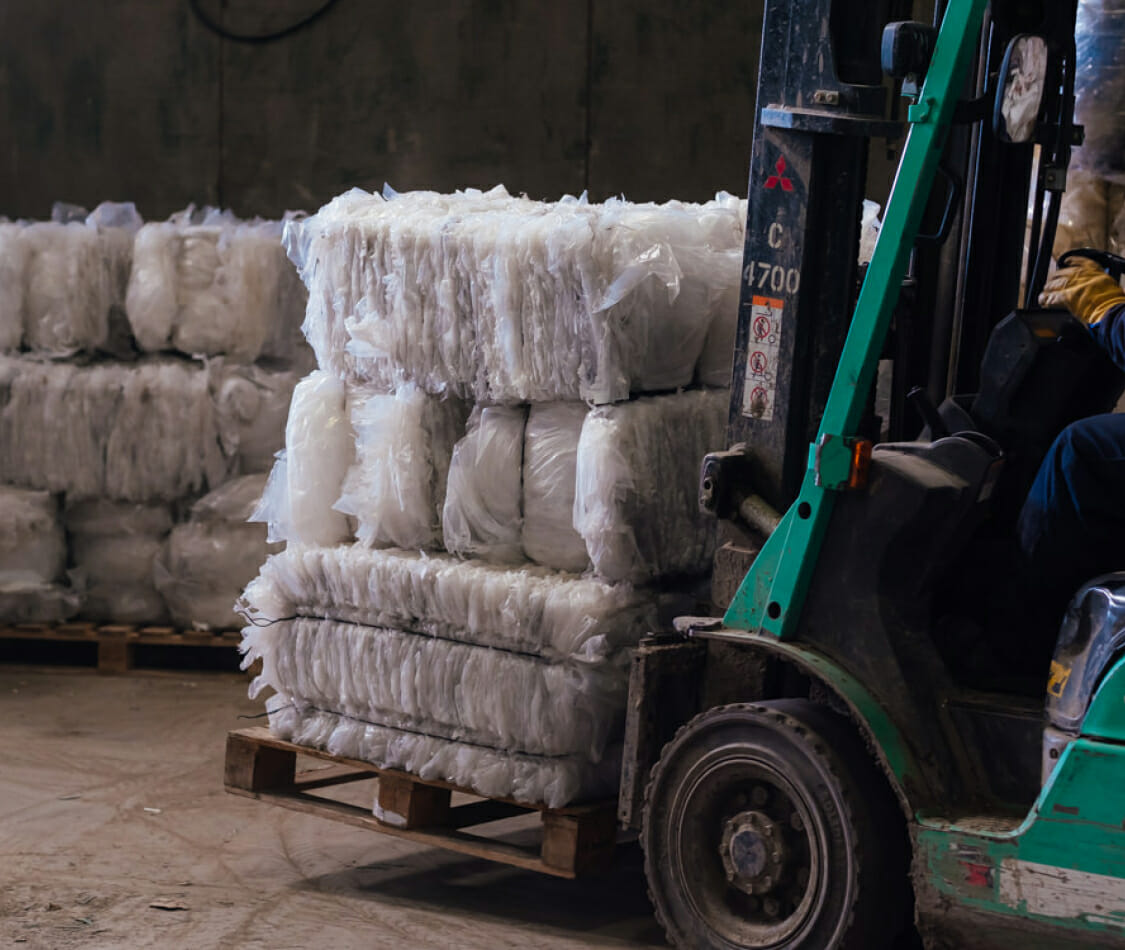
Recycling Process
How Plastic Is Recycled
We work with companies across Ireland, the UK and mainland Europe in a number of different capacities to help them achieve their goals.
We work tirelessly to assist those we work with in maximising the profit they can get for their plastic scrap, whilst always ensuring that we find the most well-suited end user for their material. We do all this and more as part of our fully traceable services, and we would love the opportunity to do it for you as well. So please see our Contact page and get in touch with us about any way in which we might be able to help you.
Testimonials
Our Clients
See what those who have benefitted from the services we provide have to say about working with Let's Recycle It.
